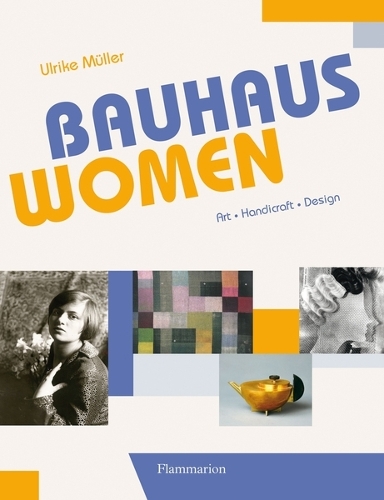
Bauhaus Women: Art . Handicraft . Design
(Hardback)
Publishing Details
Bauhaus Women: Art . Handicraft . Design
By (Author) Ulrike Mller
Editions Flammarion
Flammarion
9th November 2004
France
Classifications
General
Non Fiction
709.43
Commended for Independent Publisher Book Awards (Fine Art) 2010
Physical Properties
Hardback
152
Width 210mm, Height 275mm
Description
The first monograph on the female painters, photographers, architects, sculptors, and designers of the vanguard Bauhaus School, who helped shape the cultural history of the twentieth century. This monograph celebrates the work of twenty women artists who created in the teaching, workshop, and production branches of the Bauhaus-women whose names, masterpieces, and extraordinary lives have only gradually become known to us. Recognized figures such as Anni Albers-the first textile artist to be exhibited at the MoMA-and Marianne Brandt-whose elegant geometric tableware have become classic Alessi designs-are showcased alongside previously unknown artists such as Gertrud Grunow, who taught "Harmonizing Science"; Helene Brner, who led the textile workshop; and Ilse Fehling, a sculptor and the most sought-after set and costume designer of her generation. Founded in 1919, the Bauhaus and most of its students were poor and lacking in just about everything. What it did have, however, was an abundance of enthusiasm, talent, and innovative creativity. Furthermore, over half of those seeking to enroll at the school were women. This tornado of the "fairer sex" was initially seen as a threat, and the weaving mill was quickly turned into a separate "women's facility." Nevertheless, the mill became a hotbed of groundbreaking production, whose impact far surpassed national borders, as demonstrated by the international acclaim of photographers Lucia Moholy, Florence Henri, and Grete Stern.
Reviews
The first monograph on the female painters, photographers, architects, sculptors, and designers of the vanguard Bauhaus School, who helped shape the cultural history of the twentieth century.
"Although women formed the majority of the Bauhauss student body in its early years, the role they played in shaping the schools radical agenda has been largely ignored. Now Bauhaus Women comes along to correct the historical record." ~New York Times
Author Bio
Ulrike Mller studied ecclesiastical music, philosophy, theology, and literary sciences in Hamburg. She lives in Weimar where she works as a museum curator and city guide.
